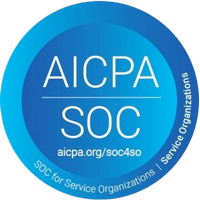Nursing is a calling. That’s worth celebrating—but just because nursing is a passion-driven career doesn’t mean workers should have to put up with clunky and time-consuming systems. There’s a lot of exciting action happening in the world of emerging healthcare technology. So why are so many healthcare organizations so resistant to technological change?
How Is Emerging Healthcare Technology Solving Industry Problems?
There are many reasons to follow the progress of new technologies. Here are just a few of the issues that new systems and softwares are addressing.
Improve Healthcare Access and Quality
If the pandemic has taught us anything, it’s that healthcare will adapt under pressure to meet patients’ needs. Many people in need of care have been unable to access it in person in recent years. Instead, telehealth and online resources have filled the gap.
Even though expanded telehealth was already on its way, there’s no denying the pandemic sped things along. There’s a silver lining to this. Facilities might have implement digital tools sooner than they were prepared for, but as a result, more patients now have access to care. This will continue to be a benefit in future years, no matter the status of COVID-19.
With greater flexibility, healthcare workers and patients both benefit. Workers may have more flexible schedules and less commuting time. Likewise, patients who live in rural areas can access specialized care without a long drive.
On top of all that, simplifying the relationships between healthcare and technology can add up to a better patient experience. With less manual work to do, nurses have more time to focus on individual patients. Less appointment time needs to be spent verifying and re-verifying information, and more time can be spent actually talking through solutions.
Eliminate Errors
It’s one of the most frequently cited reasons for automating manual work: less room for error. Minor errors can turn into major inconveniences if you’re handling large volumes of data every day. But software solutions and more automation can help prevent this.
A solution like Apploi, which includes options for workflow automation, can actually update application status and upload onboarding materials with no manual labor required. That means that your workers don’t have to worry about manually changing a candidate’s details or uploading contact information. With less human labor involved, there’s less of a chance data will be misconstrued or lost in translation.
Manage Internal Records
Hiring a large number of candidates at a time? Dealing with employee records across locations? It gets complicated. Patient information isn’t the only detail you need to think about when it comes to managing and updating data.
In an industry like healthcare, where you might see repeat candidates or employees moving between facilities, it’s particularly challenging to keep track of internal records. But moving your recordkeeping to a digital platform can be a saving grace. This way, you can hold onto an employee’s record, easily update their information, and know instantly if you do or do not want to rehire a repeat candidate.
Safeguard Sensitive Information
Patient safety is emphasized in HIPAA guidelines, but your employee’s security is just as important. You can improve privacy by embracing digital recordkeeping.
If you’re looking for an HRIS solution to manage employee files, be sure to keep security front of mind. Any platform you choose should be both HIPAA-compliant and securely encrypted. Digital records are already more resistant to physical damage, but encryption adds that extra layer of security, guaranteeing that prying eyes won’t be able to access anything you don’t want to share.
Remove Silos
With the right technology, you’ll be able to improve communication across your hiring team, or your entire organization. Instead of sending numerous emails and follow-ups, a centralized staffing platform can let all users see where you stand in your process.
Breaking down silos is particularly important for businesses managing different facilities or locations. Processes like hiring can be very challenging when you’re trying to communicate across teams or state lines. But with a user-friendly ATS, you can assign tasks to individual team members and share your notes with ease.
Why Does Healthcare Hang Onto Old Technology?
Healthcare is notorious for hanging onto old and outdated systems. But with so much to gain from emerging healthcare technology, it’s worth exploring why this is.
One of the most recent wide-scale changes to healthcare technology was the adoption of Electronic Healthcare Records (EHRs). By the 2010s, EHRs were almost universally adopted by American hospitals. But even this shift took time.
One of the overwhelming reasons healthcare is slow to implement new technologies is a fundamental desire for stability. In an interview with Physicians Practice, Sean Spina, PharmD put it this way: “Historically [in healthcare], we always defer to the safe and trusted. Our number one premise in healthcare is ‘do no harm,’ so pagers are a safe, trusted method that has proven the test of time. They are also safe to use, nonintrusive, and secure.”
Healthcare leaders don’t want to rock the boat. Inevitably, emerging healthcare technology can look like a risk. As with any new system, there’s a possibility that implementing it will also introduce new problems.
The fear of introducing new issues can hold businesses back from potentially time-, resource- and money-saving solutions. That’s a shame, since wisely used technology can also improve patient care and improve the experience of healthcare workers.
How Comfortable are Nurses With New Technology?
Emerging healthcare technology can make nurses’ lives easier or more challenging. Part of this comes down to how comfortable they are learning about and navigating new software. The success of new tech solutions depends on how workers feel about using it.
There are multiple factors that affect how healthcare workers perceive new technology. Their general attitude about technology is one factor, along with their sense of competency and their experience with software at work.
So where do nurses stand on new technology? When it comes to the patient experience, nurses are almost unified in support of new software. According to a 2018 LinkedIn survey of 600 nurses, 82% believed new technology was improving patient care—even while expressing hesitation about AI technology that could come between nurses and their patients.
A 2014 study from Curtis University also offers insight into how nurses approach emerging technology. Out of the 134 surveyed healthcare workers, 59% said they had intermediate computer skills. Another 26% called themselves beginners, while 15% said their technological skills were advanced. That’s 74% of respondents who felt some competency. In the intervening years, computer skills have only become more normalized in workers’ personal and professional lives.
As Nurses Changes, So Does the Place of Technology
Baby Boomers are reaching retirement age, and members of Gen Z are looking for jobs. The demographics of the nursing industry are changing. What does that mean for technology?
First of all: age isn’t everything when it comes to digital fluency. Despite the common assumption that younger workers are more comfortable with new technology, nurses of all ages have expressed an interest in learning tech skills. One 2011 study found that when asked, nurses in different age groups (Veterans, Baby Boomers, Gen X, and Millennials) all said they would be willing to learn new skills through online lectures and mobile education tools.
The same study found that over 91% of nurses were willing to learn via lecture. This was the favored method for all age groups. Even the youngest generation of nurses preferred to have in-person instruction when possible. But nurses of all ages were willing to try digital tools.
This all paints a very hopeful picture of healthcare workers’ overwhelming openness to emerging healthcare technology. However, a 2015 healthcare literature review suggests something different. Even while some older nurses are excited about digital tools, some nurses take changes in technology as an indication that it’s time to retire.
Overall, the majority of nurses working today have the computer and digital skills needed to learn new tools and systems. Those who don’t tend to be willing to learn when the need arises. With that being said, nursing demographics are changing. As Baby Boomers retire and Gen Z candidates enter the workforce, more employees consider themselves digital natives. Willingness to learn aside, the existing computer competence within healthcare is only growing.
The Toll of Outdated Technology on Nurses
Working with outdated technology can be a stressor. Old systems can make work slow, redundant, and frustrating. But there’s another issue with antiquated software that might come as a surprise.
Experts in the field suggest that healthcare technology should be replaced every ten years to stay current. But realistically, the healthcare industry tends to fall behind. If you accept the notion of a ten year software cycle, healthcare is behind by two cycles.
Healthcare providers tend to be driven by a passion for their work—but IT professionals might enter healthcare for different reasons. With plenty of options, the top computer science graduates are unlikely to flock to an industry that’s still operating with slow and outdated platforms.
To understand the stakes associated with hiring the best tech support, we need to look again at healthcare workers’ individual experiences. Research suggests that even though nurses feel open to new technologies, they also think of technical support as an obstacle to doing their job. How can this be? Clearly, something is going wrong between nurses and IT professionals.
To fix this, healthcare leaders need to find ways to become attractive to the best technical support workers. Part of that is making an investment in technology. At the same time, healthcare needs to figure out how to actually integrate computer science professionals into the industry. Building strong communication between care providers and tech specialists requires commitment and passion on both sides.
It’s not just stressful for nurses to work with inefficient systems. It’s also stressful to get the technical support they need in an industry that doesn’t prioritize computer and digital skills.
Preparing for Healthcare Technologies of the Future
In 2020 , the WHO State of Nursing Report urged governments and stakeholders to invest in education for nurses around emerging healthcare technology. Virtual reality, artificial intelligence, and telehealth are all expected to continue growing within healthcare.
Ultimately, there’s nowhere to go but forward. Healthcare organizations can’t refuse new technology without also losing out on staffing and care opportunities. Businesses should embrace this moment by integrating new technology where they can. Leaders need to focus on implementing software solutions that will set them up for success in the future. In other words, software platforms that are continuing to update along with the industry.
In addition, it’s important to invite nurses into the conversation. Nurses have the skills and openness to excel with new tools. But working with systems that aren’t designed with the user experience in mind is exhausting. Nurses have experience and insight that can inform decision-making about new technologies. It only makes sense to ask for their input.
Better Healthcare Staffing With Apploi
If emerging healthcare technology feels too complicated to consider—don’t worry. Apploi is here to simplify your healthcare staffing, with a healthcare-specific customer support team that understands the industry’s needs. We help employers source candidates, streamline hiring, and onboard new recruits. Create automatic digital employee records, track important documents, and get automated alerts when paperwork is missing or soon to expire.
Interested in learning more about how you can recruit, hire, and onboard healthcare staff quickly? Contact us today for a free demo of our end-to-end talent management solution, or learn more about how Apploi helps you keep candidates engaged.





